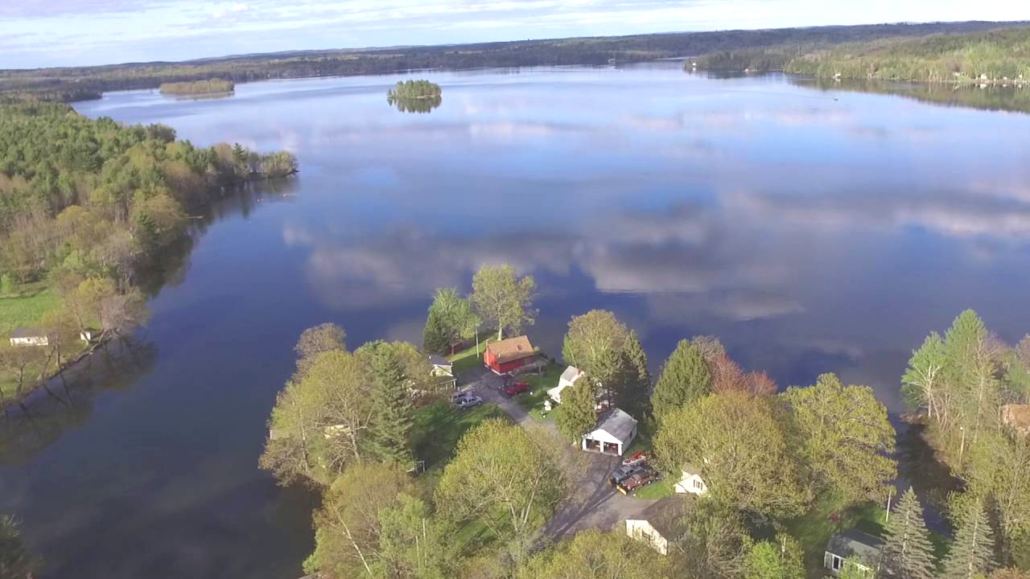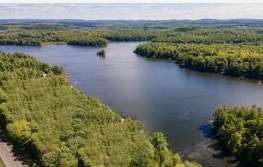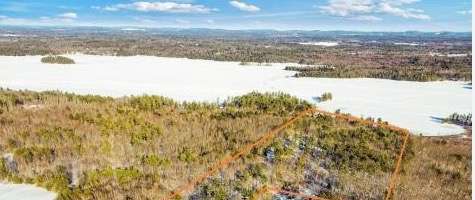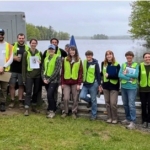Volunteers needed for watershed survey
Submitted by Mary Schwanke
Webber Pond Board of Directors
Water Quality Committee
What is a watershed survey?
Watershed surveys are field surveys conducted by trained volunteers in the community to determine the extent of pollution in a particular lake watershed. Volunteers are trained to identify erosion problems because soil erosion is the largest source of phosphorus and sediment — the major pollutants — to lakes. Soil erosion is also easy to identify and solutions are generally simple and inexpensive.
What would be the objective of my work?
Your primary objective would be to locate as many erosion problems in the Webber Pond, Threemile Pond and/or Threecornered Pond watersheds as possible. Eroding soil is caused by stormwater runoff and enables pollutants, in the form of phosphorus and sediment, to reach the lake. A second, but equally important objective is to help the watershed community understand how land use in the watershed influences lake water quality. Once their awareness is raised, people are more likely to change habits that are harmful to the lake.
How much time would be required of me?
You’ll need to commit the majority of the day, and possibly a few hours more another day or two. The total time commitment is usually 8-24 hours, however, how much time you commit is up to you!
Will I receive training?
A mandatory online watershed survey training is scheduled for Monday, May 12, from 6:30 – 8 p.m. Following this virtual “classroom training”, you will accompany an experienced technical leader during the day of the survey who will provide additional “field training” on how to conduct a watershed survey.
When and where does the survey take place?
The survey is scheduled to take place over three days, from Thursday, May 15, through Saturday, May 17, and may extend to the end of May to complete. If your group does not finish their part of the survey that day, you will coordinate with your technical leader to finish your sector within the next couple of weeks.
How will I know what to do?
The survey training on May 12 will teach you how to recognize common types of erosion problems, the related recommended fixes, and how to document the erosion sites using prepared forms. Each group will have a technical leader to help provide field training and answer any questions that come up.
What information is covered in the training?
Training topics include:
• Polluted runoff with a focus on soil erosion and its effects on lake water quality
• Typical erosion problems
• Recommended fixes for common erosion problems
• Site documentation
• Communicating with landowners
What will I be looking for?
You’ll look for evidence of erosion problems, small and large. You’ll look closely at roads, driveways, shoreline properties, and other developed areas for signs of erosion, such as gullies, rills, and sheet erosion.
What’s it like in the field? Would we be going on private property?
The best way to investigate your section of the watershed is to walk it, but some areas of the watershed will require driving in a car to get around the watershed or to survey long sections of roads or driveways. You will likely also be accessing private property. The survey will have been well publicized before the actual day of the survey, so the watershed residents should be aware of what you’re doing and leaders will be aware of properties which do not want to be surveyed. At each residence where your group would like to access the property, your group will knock on the door to ask permission prior to accessing their land.
Who will be out there with me?
Usually each group consists of two volunteers and one technical leader. The technical leader will provide the survey materials needed to document survey findings such as a tablet, maps, and landowner lists.
What do I need to bring?
• Clothing appropriate for light hiking outside and for the weather
• Water, lunch, snacks
• Umbrella in case of rain
• Bug spray, sunglasses
Who do I go to with questions?
Webber Pond Association: Susan Traylor (410) 271-6832 (text)
Threemile Pond Association: Kevin Canty (603) 303-2646 (text)
Threecornered Pond Association: Anne D’Errico (603) 303-1987.
Responsible journalism is hard work!
It is also expensive!
If you enjoy reading The Town Line and the good news we bring you each week, would you consider a donation to help us continue the work we’re doing?
The Town Line is a 501(c)(3) nonprofit private foundation, and all donations are tax deductible under the Internal Revenue Service code.
To help, please visit our online donation page or mail a check payable to The Town Line, PO Box 89, South China, ME 04358. Your contribution is appreciated!






Leave a Reply
Want to join the discussion?Feel free to contribute!